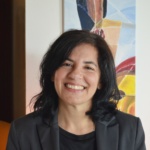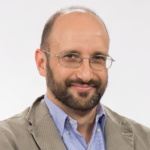 Cagliari APPLY Training School: Argumentation and Pragmatics
Cagliari APPLY Training School: Argumentation and Pragmatics
APPLY HERE, until July 30, 2022
University of Cagliari | September 19-21, 2022
The purpose of this training school is to introduce the participants to a variety of approaches to the study of argumentation and pragmatics, with an emphasis on the important and complex interactions between argumentation theories and pragmatic studies.
THEME
With the support of the European network for Argumentation and Public PoLicY analysis (APPLY) COST Action CA17132, the Department of Pedagogy, Psychology and Philosophy at the University of Cagliari organizes a three-day training school on Argumentation and Pragmatics. The APPLY COST Action seeks to improve the way European citizens understand, evaluate and contribute to public decision-making on such matters of common concern as climate crisis, energy policies, but also immigration policies and, most recently, health policies concerning the covid-19 pandemic. To achieve this goal, the researchers and practitioners involved in this network explore ways of treating the gaps in communication and argumentation that arise between citizens, policymakers, and scholarly experts.
This requires analyzing not only the logical force and rhetorical power of communicative acts, but also their pragmatic mechanisms. Argumentation theories have often arisen precisely from the interplay of logical and dialectical concern, yet the full scope of the relevance of pragmatics for the study of argument still remains to be explored. This entails a wide variety of open challenges: analyzing the interactive function of argumentation, reconstructing arguments as speech acts, studying how premise-conclusion relations are actually conveyed in natural language, in such a way as to allow for their systematic and repeatable evaluation, as well as applying such insights to specific domain (e.g., health communication) and phenomena (e.g., metaphors).
During this three-day training school, scholars from philosophy, logic, linguistics, discourse analysis and argumentation studies will introduce the participants to a variety of approaches to the study of the pragmatic dimension of argumentation. Each training session will inform the participants on a specific perspective (ranging from argumentation theory and pragmatics, to discourse analysis and logic), with an emphasis on promoting the interaction with participants and offering the opportunity to apply the various analytical categories to the discussion of concrete examples and case-studies. There will also be two entire sessions dedicated to presentations by the participants of their own material and project ideas on argumentation and pragmatics, with in-depth feedback from the instructors, the organizers and the audience.
TRAINERS
Lilian Bermejo Luque
 Lilian Bermejo Luque is Associate Professor at the Department of Philosophy I of the University of Granada. She is the director of the FiloLab Scientific Unit of Excellence, which focuses on controversies and public debate. She is the past president of the Association for Informal Logic and Critical Thinking. Her main area of expertise is argumentation theory: she is the author of numerous publications, including the monograph “Giving reasons. A linguistic-pragmatic approach to argumentation theory” (Springer, 2011). She was a founding member of the European Conference on Argumentation and part of its steering
Lilian Bermejo Luque is Associate Professor at the Department of Philosophy I of the University of Granada. She is the director of the FiloLab Scientific Unit of Excellence, which focuses on controversies and public debate. She is the past president of the Association for Informal Logic and Critical Thinking. Her main area of expertise is argumentation theory: she is the author of numerous publications, including the monograph “Giving reasons. A linguistic-pragmatic approach to argumentation theory” (Springer, 2011). She was a founding member of the European Conference on Argumentation and part of its steering
committee from 2013 to 2021, and she is on the editorial board of scientific journals such as Topoi, Argumentation, and Revista Iberoamericana de Argumentación.
Sarah Bigi
 Sarah Bigi is Assistant professor of Linguistics at the Faculty of Linguistic Sciences and Foreign Literatures of Università Cattolica del Sacro Cuore, Milano. She obtained her PhD from the same university in 2007, with a dissertation on the role of keywords in textual structures. In 2013 she was awarded a grant from the Italian Ministry of Education and Research for a project on “Healthy Reasoning. Strategies and Mechanisms of Persuasion in Chronic Care”, whereas from 2017 to 2021 she has been Co-Chair of the pEACH Subcommittee of the International Association for Communication in Health Care (EACH). Her main area of research lies at the intersection of linguistics and argumentation studies, with a focus on health communication: she has published extensively on these topics, including the monograph “Communicating (with) care. A linguistic approach to the study of doctor-patient interactions” (IOS Press, 2016).
Sarah Bigi is Assistant professor of Linguistics at the Faculty of Linguistic Sciences and Foreign Literatures of Università Cattolica del Sacro Cuore, Milano. She obtained her PhD from the same university in 2007, with a dissertation on the role of keywords in textual structures. In 2013 she was awarded a grant from the Italian Ministry of Education and Research for a project on “Healthy Reasoning. Strategies and Mechanisms of Persuasion in Chronic Care”, whereas from 2017 to 2021 she has been Co-Chair of the pEACH Subcommittee of the International Association for Communication in Health Care (EACH). Her main area of research lies at the intersection of linguistics and argumentation studies, with a focus on health communication: she has published extensively on these topics, including the monograph “Communicating (with) care. A linguistic approach to the study of doctor-patient interactions” (IOS Press, 2016).
Elisabetta Gola
 Elisabetta Gola is full professor of philosophy and language studies at the Department of Pedagogy, Psychology and Philosophy at the University of Cagliari, where since 2009 she coordinates the graduate degree in Communication Studies. Her research interests focus on language comprehension, with special emphasis on the theoretical and pragmatic aspect of metaphor interpretation and production. More recently she studied the role of language on social media, as well as the linguistic dynamics of effective communication, both in speech and in writing.
Elisabetta Gola is full professor of philosophy and language studies at the Department of Pedagogy, Psychology and Philosophy at the University of Cagliari, where since 2009 she coordinates the graduate degree in Communication Studies. Her research interests focus on language comprehension, with special emphasis on the theoretical and pragmatic aspect of metaphor interpretation and production. More recently she studied the role of language on social media, as well as the linguistic dynamics of effective communication, both in speech and in writing.
Martin Hinton
 Martin Hinton is Assistant Professor at the Department of English and General Linguistics in the Faculty of Philology, University of Łódź. His main focus of research is on argumentation theory, with a particular interest in argument evaluation and fallacy theory; other areas in which he has extensively published include philosophy of language and linguistics, rhetoric, and social epistemology. More recently, he has focused on how insights from these fields can be applied in the development of XArg, eXplainable Argumentation, designed to be both analogous to and applicable in explainable AI. This last aspect of his research is well exemplified in his recent monograph, “Evaluating the Language of Argument” (Springer, 2021).
Martin Hinton is Assistant Professor at the Department of English and General Linguistics in the Faculty of Philology, University of Łódź. His main focus of research is on argumentation theory, with a particular interest in argument evaluation and fallacy theory; other areas in which he has extensively published include philosophy of language and linguistics, rhetoric, and social epistemology. More recently, he has focused on how insights from these fields can be applied in the development of XArg, eXplainable Argumentation, designed to be both analogous to and applicable in explainable AI. This last aspect of his research is well exemplified in his recent monograph, “Evaluating the Language of Argument” (Springer, 2021).
Fabrizio Macagno
 Fabrizio Macagno is Assistant Professor of philosophy at the Universidade Nova de Lisboa, Portugal. He conducts research in the field of argumentation and philosophy of language, with applications to education, medical communication, and legal interpretation. His research interests are focused on the relationship between argumentation and semantics, which he tackles from an epistemological, logical and linguistic perspective. He has published several articles and five monographs on these topics, including “Statutory interpretation: Pragmatics and argumentation” (with D. Walton and G. Sartor, CUP, 2021), “Interpreting straw man argumentation. The pragmatics of quotation and reporting” (with D. Walton, Springer, 2017), and “Emotive language in argumentation” (with D. Walton, CUP, 2014).
Fabrizio Macagno is Assistant Professor of philosophy at the Universidade Nova de Lisboa, Portugal. He conducts research in the field of argumentation and philosophy of language, with applications to education, medical communication, and legal interpretation. His research interests are focused on the relationship between argumentation and semantics, which he tackles from an epistemological, logical and linguistic perspective. He has published several articles and five monographs on these topics, including “Statutory interpretation: Pragmatics and argumentation” (with D. Walton and G. Sartor, CUP, 2021), “Interpreting straw man argumentation. The pragmatics of quotation and reporting” (with D. Walton, Springer, 2017), and “Emotive language in argumentation” (with D. Walton, CUP, 2014).
Giuseppe Sergioli
 Giuseppe Sergioli is Associate Professor at the Department of Pedagogy, Psychology and Philosophy at the University of Cagliari, where he teaches, among other things, logic and argumentation theory. A philosopher of science with a background in theoretical physics, his research interests span various areas and disciplines: from the application of logic to natural language argumentation to quantum computing and quantum logic. He is currently coordinating the PhD program in Philosophy, Epistemology, Human Sciences at the University of Cagliari, as well as acting as local coordinator of the research project “For an interdisciplinary dialogue among Logic, Philosophy and Communication Science”, funded by Italian Ministry of Education (MIUR).
Giuseppe Sergioli is Associate Professor at the Department of Pedagogy, Psychology and Philosophy at the University of Cagliari, where he teaches, among other things, logic and argumentation theory. A philosopher of science with a background in theoretical physics, his research interests span various areas and disciplines: from the application of logic to natural language argumentation to quantum computing and quantum logic. He is currently coordinating the PhD program in Philosophy, Epistemology, Human Sciences at the University of Cagliari, as well as acting as local coordinator of the research project “For an interdisciplinary dialogue among Logic, Philosophy and Communication Science”, funded by Italian Ministry of Education (MIUR).
ABSTRACTS OF THE TRAINING SESSIONS
LILIAN BERMEJO-LUQUE, University of Granada
The speech-act of arguing: grounding argumentative normativity in linguistic-pragmatic terms
On which grounds do we say that we should argue thus and so? This seminar presents the Linguistic Normative Model of Argumentation (Bermejo-Luque, 2011) and analyzes its underlying assumption that argumentative normativity (that is, the conditions to determine whether a piece of argumentation is good or bad) is a matter of the type of speech-act that argumentation is. The LNMA is contrasted with other models that also build argumentative normativity in terms of the felicity conditions of the speech-acts that constitute argumentative communication (van Eemeren and Grootendors, 1984; van Eemeren, Grootendorst, Jackson and Jacobs, 1993; Kauffeld, 2009; Corredor, 2021; Kauffeld & Goodwin 2022). Such contrast is made, in particular, by addressing the problem of justifying normative models for argumentation theory and by considering the different functions that the speech-act of arguing may play in different types of argumentative dialogues.
SARAH BIGI, Catholic University of the Sacred Heart, Milan
Medical argumentation at the crossroads between pragmatics and argumentation theory
Interactions in the clinical context offer particularly rich and interesting data for argumentation scholars. In this seminar, I will develop two aspects in particular that might be of interest for participants. In the first part of the seminar, I will discuss the kind of argumentative discourse that seems to be typical of interactions between health care providers and patients. This discussion will be grounded on a definition of clinical interactions based on the notion of ‘activity type’. More specifically, these interactions will be described as cases of an activity type aimed at obtaining expert advice on a health problem. Within this framework, I will suggest typical inferential patterns for the interpretation of speech acts in the clinical setting; then, I will discuss different speech acts that trigger deliberative sequences, focusing especially on examples of a recurrent pattern that can be described as a sequence of acts aimed at: searching for relevant data – interpreting them – providing a recommendation. Based on the description of this pattern, in the second part of the seminar I will propose to consider clinical dialogues as special ‘normative contexts’, i.e. contexts where utterances are produced calling into being rules or norms, which in turn generate possibilities for action that did not exist before. What is interesting is to understand what kind of normativity is generated within these interactions. By offering various examples from real-life cases, I will suggest that what we are observing are cases of anankastic obligations, i.e. relative to rules that are determined by necessity. I will conclude the seminar by discussing the implications that this perspective has, especially for the analysis of shared decisions and exercitive acts in the context of clinical interactions.
ELISABETTA GOLA, University of Cagliari
Metaphor and argumentation: analogies, framing, resistance
Metaphors are conceptual structures that have a relevant impact in many types of argumentation. Among them, analogies are one of the cognitive instruments in scientific “discoveries”; and help define the semantic field of new areas of knowledge. Another unescapable effect of metaphors is their capacity to frame the way in which we consider reality, contributing to highlight certain concepts and hide others. A recent study (Steen, 2017) focus on the other side of the framing effect: the resistance to metaphors. Metaphors, indeed, at the same time, can implicitly frame a portion of reality and trigger resistance to that frame. In our workshop we will talk about the relation between argumentation and metaphor from these 3 different perspectives.
MARTIN HINTON, University of Lodz
Argument evaluation with the Comprehensive Assessment Procedure for Natural Argumentation (CAPNA)
The CAPNA is a procedural tool designed to assist in the evaluation of arguments, making them systematic, repeatable, and fully explicit. Its development is part of a broader approach which can be referred to as explainable argumentation (X-Arg). The tool draws on a variety of normative frameworks and makes a clear distinction between the analytical description of the structure and contextual features of arguments and the evaluative acceptability judgements based on that analysis. The first class will concentrate on the theoretical background underpinning the procedure. This will include discussion of the Informal Argument Pragmatics and Informal Argument Semantics which inform the stages of Process analysis and Expression analysis respectively, as well as a description of how this approach to evaluation is based on an understanding of the philosophy of meaning and a broad, but clearly defined, conception of argumentation (Hinton 2021). The second class will feature a step-by-step guide to using the CAPNA along with example evaluations. Participants will be encouraged to employ the system to make their own acceptability judgements, and to discuss the effectiveness of the procedure and the impact that X-Arg may have on the field as whole.
FABRIZIO MACAGNO, Universidade Nova de Lisboa
Interpretation and the pragmatic dimensions of argumentation
In argumentation theory, argument has been normally defined as a “social and verbal means” to address a difference (Walton 1990, 411), constituted by statements having a specific interactive function (van Eemeren & Grootendorst 1984, 4). The modern roots of argumentation lie in this twofold relationship between language and context: arguments are verbal activities occurring in a specific communicational setting and modifying it. The implications of this perspective led to the pragmatic approach to fallacies, which regards sophisms as arguments that can be reasonable in certain contexts of dialogue, but are weak or unacceptable in the present one (Walton 1995), and to the Pragma-Dialectical normative account, regulating the argumentative dialogue through a set of rules establishing the correct communicative behavior. However, beyond these two leading models, the relationship between argumentation and pragmatics is an extremely complex and innovative area of research. These lessons will focus on two specular aspects of the specific problem of how utterances used in argumentative discussions are interpreted. In particular, the first class will be devoted to the fallacy of ignoring qualifications and the related fallacy of straw man. It will be shown how the notion of qualification is a pragmatic dimension underlying any text, which can be manipulated for strategic purposes. The pragmatic theories addressing the problem of pragmatic enrichment will be used for explaining how this manipulation is possible, and how it can be deceiving. The second class will be devoted to the broader problem of how to account for an interpretation. Here, the argumentative approach to interpretation will be defended, showing how argumentation schemes can be used for justifying the reconstruction of what is meant in a specific context.
GIUSEPPE SERGIOLI, University of Cagliari
From common language to logic: an interdisciplinary path
What is logic? Where is it applied to and why is it strictly connected with argumentation theory? In order to answer these “tricky” questions we use the expedient to show the intrinsic interdisciplinarity of logic. Surprisingly enough, we will be able to show how, starting from very reasonable considerations regarding common language, it is possible to establish a simple formal (logical) language that turns out to be extremely expressive even for other, apparently far away, topics such as information science, physics, mathematics and so on.
DETAILED PROGRAMME OF THE TRAINING SCHOOL
Monday, Sep 19
Aula Motzo
08:30-09:00 Registration and introductory remarks
09:00-10:45 Hinton 1
10:45-11:15 Coffee break (aula 9A)
11:15-13:00 Bigi 1
13:00-14:30 Lunch (aula 9A)
14:30-16:15 Gola
16:15-16:45 Coffee break (aula 9A)
16:45-18:30 Bermejo-Luque 1
Tuesday, Sep 20
Aula Motzo
09:00-10:45 Hinton 2
10:45-11:15 Coffee break (aula 9A)
11:15-13:00 Bermejo-Luque 2
13:00-14:30 Lunch (aula 9A)
14:30-16:15 Macagno 1
16:15-16:45 Coffee break (aula 9A)
16:45-18:30 Student session
20:30 Social dinner
Wednesday, Sep 21
Aula 6
09:00-10:45 Macagno 2
10:45-11:15 Coffee break (aula 9A)
11:15-13:00 Bigi 2
13:00-14:30 Lunch (aula 9A)
14:30-16:00 Sergioli
16:00-16:30 Coffee break (aula 9A)
16:30-18:15 Student session
18:15-18:30 Concluding remarks
TARGET AUDIENCE
The training school is intended for both academics and practitioners interested in analyzing the interplay between argumentation and pragmatics, to better understand the impact of argumentative speech acts in the context of the large-scale public debates that the APPLY network is designed to investigate.
Please note that applying for the training school does not automatically guarantee access to it. In case of high application numbers priority will be given to PhD students or early career researchers (max. 8 years since PhD award).
FUNDING AND CONTRIBUTION TO CATERING EXPENSES
Participants affiliated to an academic institution or company from a COST Full Member Country, a COST Cooperating Member Country or from a COST Near Neighbour Country may apply for a bursary. The exact value of the bursary depends on expected costs for travel and accommodation. The maximum amount that may be reimbursed will be communicated to the participants when notified of their acceptance to the training school.
There is no registration fee, yet all accepted participants will be required to pay in advance a contribution (120 €) to the costs of catering during the event (3 lunches, 6 coffee breaks, 1 social dinner). Participants who qualify for an APPLY bursary (see above) will have this amount reimbursed as part of their daily allowance, as per COST rules.
APPLY CONFERENCE AND ECA 2022 CONFERENCE IN ROME
The week after this APPLY training school, Italy will also host two other important events on argumentation theory: the APPLY conference in Rome (27-28 September 2022) and the ECA 2022 conference, also in Rome (28-30 September 2022). Together, these two events will showcase over 170 academic presentations by leading international scholars on topics of relevance for the APPLY action, therefore offering an excellent opportunity for APPLY members to further strengthen their expertise in these areas. The temporal and geographical proximity of this training school with such events is designed to facilitate participants in attending all of them, thus providing added value to their training with minimum costs.
Important dates
- Deadline for application: 30 July, 2022
- Notification of acceptance: 10 August, 2022
- Confirmation of participation: 20 August, 2022
INFORMATION ABOUT THE VENUE
At this stage the training school is planned as a face-to-face only event to be held on campus at the Department of Pedagogy, Psychology and Philosophy of the University of Cagliari, Via Is Mirrionis 1, Cagliari (https://goo.gl/maps/wimKCxXuCnjGMGcaA). Should the situation with the COVID-pandemic have any unexpected development, a hybrid or online modality will be considered.
TRAINING SCHOOL CONTACTS
Local organizer: Prof. Antonio Ledda
https://unica.it/unica/page/en/antonio_ledda1
Department of Pedagogy, Psychology and Philosophy
University of Cagliari
Via Is Mirrionis,1 – Località “Sa Duchessa”
09123 Cagliari
Italy
Training school coordinator: Dr. Gabrijela Kišiček
Faculty of Humanities and Social Sciences
University of Zagreb
Ivana Lucica 3
10000 Zagreb

